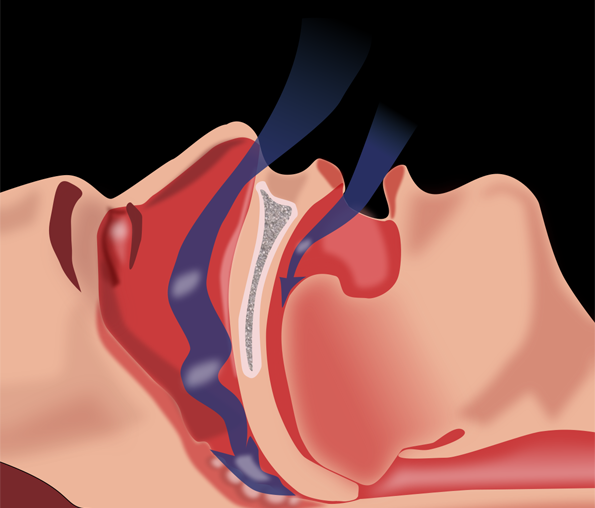Office Address
MEHTA CLINIC, Meeranangar, Shobhagpura, 100ft Road, Udaipur (Raj.) 313001

Sleep apnea snoring can often be managed and, in some cases, significantly reduced or effectively treated, but whether it can be "cured" depends on the underlying cause and type of sleep apnea.
Sleep apnea is a sleep disorder characterized by repeated interruptions in breathing during sleep, often accompanied by loud snoring. Here's an overview of approaches to addressing the condition:
Weight Loss: For people with obstructive sleep apnea (OSA), losing excess weight can reduce the pressure on the airway, decreasing snoring and apneic episodes.
Sleeping Position: Sleeping on your side instead of your back can help keep the
In mild cases of sleep apnea caused by temporary factors like nasal congestion, addressing the root cause (e.g., using decongestants or allergy treatments) can
lead to resolution.
In children with sleep apnea caused by enlarged
tonsils or adenoids, removal through surgery
often cures the condition.
airway open.
Avoiding Alcohol and Sedatives: These substances relax
the throat muscles, increasing the likelihood of airway
obstruction.
Less commonly, pain in the head and neck may signal more serious issues, such as nerve disorders like occipital neuralgia or vascular conditions like carotid artery dissection. Chronic conditions, including fibromyalgia, can also contribute to persistent pain.
Continuous Positive Airway Pressure (CPAP): A CPAP
machine delivers steady air pressure to keep the airway
open during sleep, effectively eliminating snoring and
apneic events in most users.
Oral Appliances: Custom-fitted devices reposition the
jaw or tongue to keep the airway open.
Surgery: Procedures such as uvulopalatopharyngoplasty
(UPPP), septoplasty, or other airway corrections may be
considered for structural issues.
Smoking Cessation: Smoking can inflame and narrow the airways, worsening sleep apnea symptoms.
Get Your Quote Or Call: 9024868258
MEHTA CLINIC, Meeranangar, Shobhagpura, 100ft Road, Udaipur (Raj.) 313001


